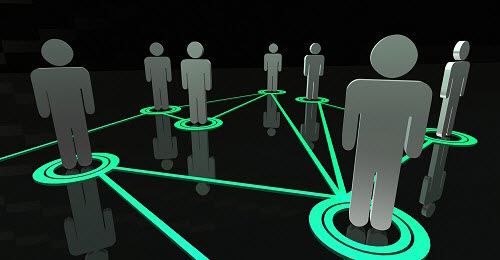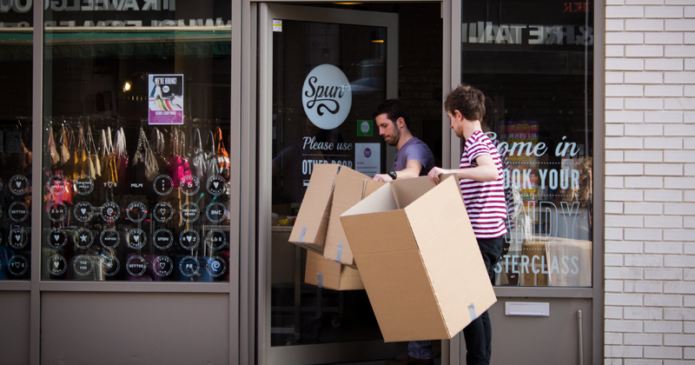
We all know about social media as a new channel for customer service.
It’s been a well explored theme during 2010. What interests me is how this might evolve.
Responding to customers via Twitter has been novel, newsworthy and refreshingly different. That said, why brands want to bait their customers with this personalised form of intervention when it’s BAU in standard support still escapes me. They must have a death wish or just don’t know when to stop prodding the maddened beast.
Anyway moving forward my hunch is this. Each and every customer’s cry of anguish via Twitter, Facebook or any other public channel is but a momentary affair that will become increasingly ordinary as more try it and brands learn how to smother the noise faster. Even if your Klout score is in the mid nineties, your hissy fit won’t remain news for long as this new game evolves.
If true then it’s diminishing returns when a customer cries out individually as a tactical response. But what about as part of a pressure group with a mission?
When the focus is not on one-off support incidents, but goes deep, intent on holding a brand to account for its overall level of customer service. In other words, organised as a sustained, strategic challenge. In the way we see Greenpeace get stuck in when they choose too.
Gimme A For Instance
Here is an example. You join a customer group whose self appointed role is to provide critical feedback (highs as well as lows) on how an organisation that matters to you is managing its customer services.
You are motivated to join this particular group because the financial service company they are scrutinising is the very same one that you use. And from direct experience you’ve learnt that how it behaves directly affects you.
In fact, the trigger to sign up was a conversation with a friend of a friend whose position in that organisation is now in jeopardy because a new kingpin arrived to run customer service. Their Linkedin CV and current behaviour show that the only thing they care about is aggressive bottom line growth and personal bonus.
So all support functions that nurture and deliver quality are out. Short termism is in for the 24 month tenure this person is likely to be in post.
And that is something you choose to object too, especially since the new IVR came on stream last week and made the job of finding a real person to talk to a stupid game of menu hopping. You suspect that person was behind this recent dip in customer priorities.
So you join in the hope that you can influence this poor turn of events using the power of a like minded group and the reach of social media to get that organisation to rethink its current strategy for customer service and leadership approach. In effect you have become politically active in your legitimate role as stakeholder watchdog.
Is this crazy? I think not. Organisations have gone green, polished up their social responsibility credentials and ensured they are not caught being ageist, racist, sexist etc. In other words they have adapted as a result of strategic pressure. So why not customer service?
Right now customers allow them the freedom to be contrary. Professing customer centricity while delivering unacceptable levels of service. No one calls them on it. So they use it as a soft touch for finding more cost savings since nothing holds them in check.
As you can no doubt tell, I wouldn’t be in the least bit sad if such a form of lobby took hold in 2011. My morality is that shining a light on those that fly-tip is a public service and everyone benefits. So too in this instance. Vive la evolution!





Hi Martin,
I think you are onto something here and we are likely to see dissenting voices coalesce into meaningful groups over time. One question I would have is how do you think this will happen…what banner will it form under….will it be shareholder action, stakeholder, willing volunteers, employee rights, trading standards ??
Adrian
Hi Adrian,
Adrian,
It’s an interesting question.
I would guess that this will provide a practical way in which the consumer can express their experience, so for the novelty period of 12-18 months I would guess many will be drawn in.
Thereafter I think this will be based on how close the customer feels to the organisation. That might be as a shareholder. Or as a more unconscious rebalancing ‘that we shall know them as much as they seek to know us’ – as social listening gives way to social commerce data mining.
Who knows? But it’s fun to speculate!
It’s easy to talk about customer voice and collaboration when the volume is manageable and you are still in control. Sadly the current events in Egypt show how an authority faced with too much dissent, cuts off social media and internet in the hopes of limiting the opposition. Let’s hope the organizations we consult to recognize the how they can’t turn back time and must deal with consumers who have gelled into a powerful affinity group.
Marc,
It’s an example fizzing away in front of us. Just read that Twitter has provided a means for them to communicate. Right now who knows to what effect?